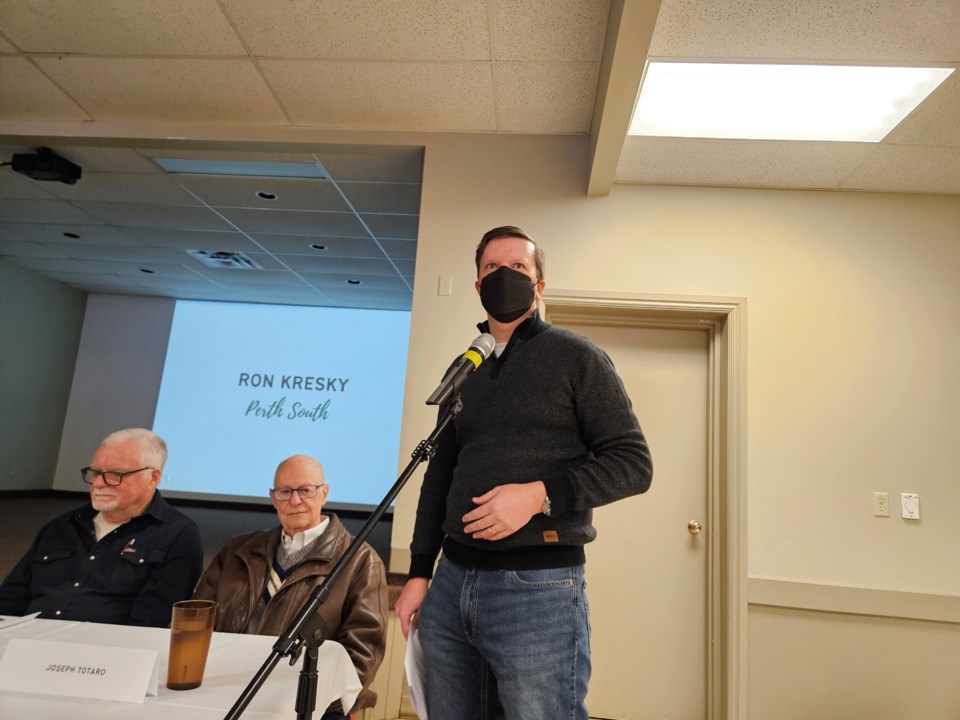Sebringville residents who oppose a proposed development that would see over 300 new housing units built in the village heard from the urban planner who is looking into the viability of the project and presented numerous questions.
The Sebringville Community Centre was filled with people on Sunday afternoon to hear an update from the grassroots organization Get Concerned Perth County on a proposed development in Sebringville. The group's steering committee provided updates on their battle to protect their hamlet. The organization was joined by their hired experts including Jeff Henry who is a former Waterloo council member and urban planner with Arcadis.
“My firm was retained on behalf of all of you to do a review of just what exactly it is that’s before you and to what extent it conforms with appropriate planning policies and procedures,” Henry told the audience. “I spent the fall doing a peer review of the work that has been submitted and done to date by the applicant from a planning perspective to understand, does this conform, and does this make sense. We looked at this and dropped off a nearly 40 page memo with the planner on record.”
The proposed development by a numbered corporation from Mitchell, who is being represented by the Baker Planning group, would see 302 new housing units on Station Road. The proposed development would see 92 single detached dwellings, 168 apartment units and 42 townhouses.
The conversation around water was something brought up by the audience and by Henry.
“Can the development as proposed be serviced, is there adequate water, is the wastewater something that can be reasonably discharged in your drain and treated, is there no negative impact from the proposed water and sanitary surface on everyone that is still relying on water and sanitary service here today” Henry stated as questions that need to be answered. “Those are the criteria that are quite clear in the planning act and the provincial planning statement and the official plan. You need to be able to check those boxes to let development proceed no matter what scale it is.”
Another area of concern shared by residents and experts alike is the scale of the development of the project. Henry posed a question to the audience-does what is being proposed conform to what Perth County’s view of a village is, which is what Sebringville is classified as.
“Village policies are clear about what kind of limited development is consistent with the rural character of the village and what’s proposed in my opinion do not align,” Henry told the audience, answering his own question.
The second part of his question was around the servicing side, which Henry said is what the County will be looking at, but he brought up servicing for the proposed development, he was blunt when he said they didn't know.
“In this application there was absolutely nothing to demonstrate that the proposed services are financially feasible over the lifetime of these services, as they are repaired and maintained over the decades to come," Henry said.
Henry and the steering committee took questions from the audience on a wide variety of topics including water, the official plan, transportation and more. Perth South councillors Rob Wilhelm, Sam Corriveau, and Jim Van Nes were in attendance as was Perth East councillor Andrew McAlpine.
A link to the nearly 40 page report, which was sent to all Perth South, and Perth County councillors, along with planner Jeff Bannon can be found here.
